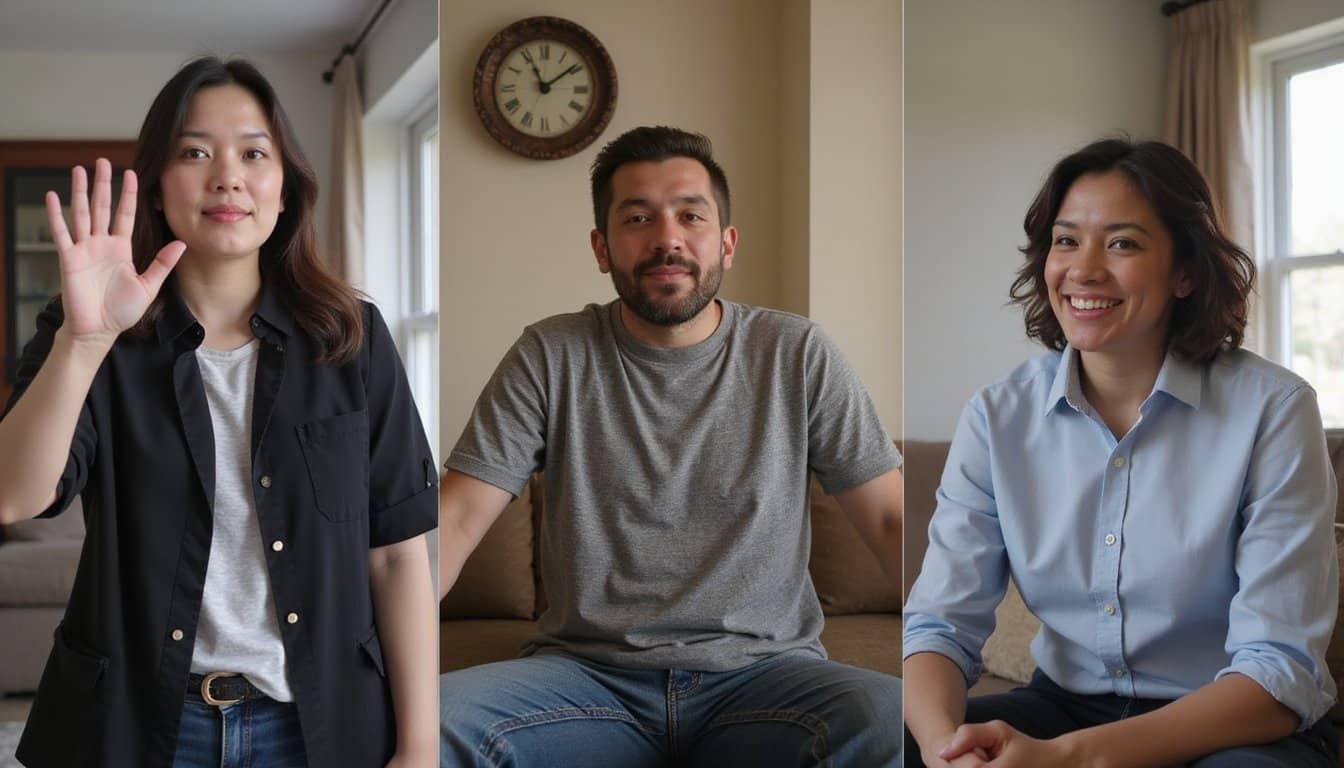Are There Ways to Treat Depression Naturally?
We all feel a little down sometimes. But what can you do when feelings of depression and hopelessness persist for a couple of weeks or more?
Is It Depression or Sadness?
Relationship problems, financial strain, or even just a vague sense of feeling stuck can leave us sad and hopeless about the future. Feeling down is a normal reaction to generalized stress and traumatic situations alike. We can even feel sad for seemingly no reason at all.
Nearly everyone experiences these emotions at some point during their lifetime. When these feelings persist or keep recurring over a period of time, and begin to negatively impact your life, it may be more than just a temporary thing.
How do you distinguish temporary sadness from chronic, clinical depression? Sadness is a temporary emotion. Often, all it takes is a change of pace, a nap, or an enjoyable activity to take your mind off your problems.
It takes on a clinical connotation when these feelings persist or worsen over time. Symptoms of major depressive disorder (MDD) include:
• Feelings of sadness, hopelessness, anxiety, and/or fear
• Sudden crying with no apparent cause
• Loss of interest in formerly pleasurable activities
• Becoming generally irritable or having angry outbursts
• Sleep disorders, such as sleeping less or more than normal
• Overeating or loss of appetite
• Restlessness or agitation
• Lethargy or lack of energy
• Trouble with concentration and focus
• Thoughts of self-harm or suicidal ideation
• Attempted self-harm or suicide
Depression can also manifest physically, such as experiencing unexplained back pain or persistent headaches. Not all people who struggle with depression will have the entire range of symptoms, nor will they experience symptoms all the time. However, the National Institute of Mental Health (NIMH) has created some guidelines to determine whether you or a loved one exhibits signs of MDD.
Generally, individuals must have at least five of the major depressive symptoms present for the majority of the time for a period of at least two weeks. They further state that one of the symptoms must be “a depressed mood or a loss of interest or pleasure in almost all activities.” In children and adolescents, this may manifest as agitation or irritability rather than extreme sadness.
Some Depression Stats and Treatment Options
It’s estimated that more than 21 million adults in the United States experienced a major depressive episode in 2020. In addition, approximately 4.2 million young people between the ages of 12 and 17 experienced symptoms of clinical depression during the same period.
Of these, just over 66% sought treatment to help them cope with their depression. Treatment does not always include medication or sessions with a therapist. Some natural remedies can elevate your mood and alleviate symptoms of mild to moderate depression.
Natural Remedies to Manage Depression
There are few things more natural and uplifting than taking a long walk in nature on a beautiful day. Being outdoors causes your brain to react differently to stimuli and elevates your overall mood.
However, you needn’t take a long walk, or walk at all, to manage depression the natural way. Here are some other drug-free coping mechanisms.
Set Daily Goals
It needn’t be anything big. In fact, taking baby steps is recommended when you’re feeling out of sorts or overwhelmed by emotion. Start with something that’s easy to manage, such as making the bed after you get up in the morning or doing the dishes after dinner.
Creating a daily goal will help you get out of a rut of inaction and provide a sense of accomplishment when the goal is achieved. Once you get into the habit of creating and completing a new goal each day, you can begin to establish a routine. A daily routine that you can follow without too much effort can help to provide some of the stability and structure that depression strips away.
Get Some Exercise
Again, this doesn’t have to be anything too strenuous. Even a few minutes a day of dancing, walking, riding a bike, or weight training will divert your mind and release some feel-good endorphins.
Eat Right
Good nutrition is the basis for healthful living, and mental health is part of this. Studies show that foods rich in substances like protein, selenium, and omega-3 fatty acids all help with depression.
Foods to add to your anti-depression diet include:
• Lean poultry
• Fresh fish and seafood
• Dark green leafy vegetables
• Nuts
• Whole grains
• Lean meat
• Low-fat dairy products
Be wary of comfort eating, which is a common way that people try to cope with depression and sadness. It might be enjoyable at the moment but will not address depressive disorder.
Regularly Get the Right Amount of Sleep
Sleeping too much or too little are not only symptoms of depression, but they also contribute to a lack of mental focus and concentration. Try to get into a routine of regular sleeping and waking times. Remove distractions, such as electronics, from your room, and avoid napping during the day.
Keep the same schedule during the weekends as you do during the week or on workdays. It may take a few days to establish a routine, but getting a healthy amount of sleep will become intuitive after a while.
Take Supplements
Some supplements, including magnesium, have been found to provide relief from mild depressive symptoms. Herbal supplements like ashwagandha have also proved effective for managing depression and anxiety.
Vitamin D is also a good hedge against depression, and your body gets a daily dose through just five to 15 minutes of sun exposure. That’s another good reason to go for a daytime walk or bike ride.
Make sure to check with your doctor before adding any vitamins or herbal supplements to your diet. Some could interact with other medications or cause an allergic reaction.
Take Up a New Hobby
Sometimes, a simple change of routine or scenery can snap you out of a bout of depression. Something as simple as visiting a museum or reading on the beach can work wonders for your mood.
Another suggestion is to take up a hobby that challenges your brain, such as learning a new language or taking an art class. Volunteer work will keep you busy, and helping others can allow you to put your own life and problems into perspective.
Any of these activities or similar diversions have the added benefit of giving you a sense of pride and accomplishment. Don’t forget to have fun while you’re at it.
Have a Good Laugh
Speaking of having fun, don’t underestimate the power of laughter. A good joke or a funny movie won’t necessarily cure depression, but every time you find an opportunity to chuckle, your brain releases endorphins while boosting serotonin and dopamine levels.
Avoid Drugs and Alcohol
Some people seek to relieve stress and depression by escaping into drug or alcohol use. It can start innocently enough, such as taking a drink to relax, but that’s often not where it ends.
Drugs and alcohol affect the same regions of the brain that regulate mood and activate the reward-seeking mechanism in the brain. Rather than escaping your problems, you’ll develop new ones.
The Relationship Between Depression and Substance Use Disorders
There’s a link between depression and addiction that can compound the severity and chaos of the situation and make coping with depression that much harder. In fact, you could be dealing with a catch-22 situation where the depression is rooted in the emotions surrounding addiction or self-medication that lead to addiction in an attempt to relieve depression.
Numerous studies have highlighted the link between substance use and mood disorders like depression. According to a report released by the National Bureau of Economic Research, individuals who meet the clinical criteria for mental health disorders are 25% more likely to use alcohol and 69% more likely to use cocaine. In those specifically meeting the criteria for MDD, 10% to 30% are at risk for developing substance use disorder (SUD).
For mild or short-term depressive disorders, natural remedies could offer some relief and prevent an acceleration of symptoms. However, there are some cases where depression reaches a clinical level that requires further treatment. This is especially true if you’re dealing with co-occurring conditions like a combined mental health and substance use disorder.
How Co-Occurring Conditions Are Treated
Serious mental health struggles affect about one in five Americans each year. When there is a possibility of comorbidities, getting professional help is essential for long-term results. Options range from a stay at a private rehabilitation facility to counseling and substance use disorder treatment as an outpatient at a community-based public mental health center.
So, how do you decide which option is right for your situation? There are no hard and fast rules for treatment. Many times, the decision depends on a person’s situation. For example, someone might opt for outpatient treatment if they have household, work, or educational obligations and have no alternate solutions, such as childcare availability.
Others may opt for inpatient treatment if:
• They are in immediate danger of self-harm or suicide
• They lack stability in their home or employment
• They lack support or are in a co-dependent relationship
• They are also struggling with SUD
Inpatient treatment for people with co-occurring conditions is recommended, at least for the detox period. This is due to the danger of self-harm or a health crisis during drug or alcohol withdrawal. Withdrawal exhibits both physically and emotionally, and those with already fragile mental health could spiral downward during this period.
Most people have all drugs and alcohol out of their system within 24 to 48 hours. However, the withdrawal period could last as long as two weeks.
Factors that affect the timeline include:
• Length and severity of substance use
• Presence of a co-occurring mental health condition
• General health
• Age
• Rehab or treatment history
After the initial detox period, your care team will work with you to devise a personalized course of treatment. Whether you opt to continue with inpatient care or outpatient treatment, your program will include individual diagnosis and treatment for mental health disorders. This will include investigating the origins or root of the disorder as well as identifying triggers that lead to depressive episodes and substance use.
Group therapy gives clients the ability to interact with peers who are experiencing similar issues. This kind of support and feedback is essential for accountability and developing a wider community of supportive individuals with common issues. In addition to these therapies, client education and art or music therapy can help manage symptoms in the future by expanding knowledge and providing healthier alternatives for coping with depression and substance use.
Remember, substance use and mental health disorders cannot be managed overnight. Recovery is an ongoing, sometimes lifetime struggle. As such, aftercare and ongoing support are essential for long-term management and relapse prevention. This could include everything from ongoing therapy and continued involvement in group therapy to medication for managing depression.
Help Is as Close as a Phone Call
Depression is one of the most common mental health conditions, affecting hundreds of millions of people around the world. Fortunately, it’s also treatable.
If you or someone you care about is struggling with depression, the National Depression Hotline is just a phone call away. Free, confidential help is available 24/7/365 for those struggling with depression and related mental health conditions. Take the first step by calling (866) 629-4564 today.






